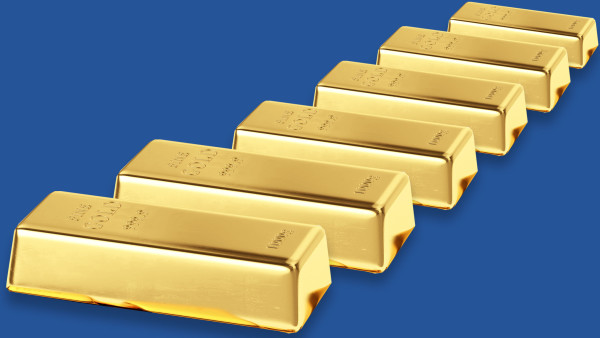
Article 4 / 4
Guide to investing in commoditiesHow much should clients allocate to commodities?

Commodities as an asset class can act as a useful diversifier in clients’ portfolios, but given the additional risks and a higher level of volatility that commodities can bring, it can be tricky to know just how much exposure clients should have.
The outlook for oil prices has turned more favourable since the start of 2019, points out Aneeka Gupta, associate director of research at WisdomTree.
She says: “Brent oil has witnessed 28.3 per cent price appreciation as of April 2 2019, enjoying its strongest start to the year since 2005, based on quarter one performance.”
Nevertheless, she says as oil tends to be among the more volatile cyclical commodities, investors should allocate to oil contingent on their risk appetite.
So why invest?
According to Ben Kumar, investment manager at Seven Investment Management, in the early 1990s, multi-asset investors started to get interested in commodities.
Mr Kumar explains: “They liked the data – commodities were not particularly correlated with bonds, equities or property – and they liked the story. Commodities are real-world assets, and should be closely related to inflation over the long term.
“Now, nearly 30 years later, most multi-asset portfolios have a sliver carved out for commodities, and there are a lot more multi-asset portfolios.”
But this has meant that some of the real-world benefits of the commodity markets have vanished as they become "financialised" – that is, influenced by investors rather than the commodity producers and consumers, he says.
He adds: “Commodity products can provide some diversification, but for us, the traditional asset classes of bonds and equities should form the bulk of portfolios.”
Similarly, Peter Elston, chief investment officer at Seneca Investment Managers, observes: “Commodities do not yield anything – in fact, because of storage costs they are negative yielding – so over time, commodity prices will tend to rise with inflation, nothing more.
“Prices are also very volatile, so volatility-adjusted returns from commodities tend to be low."
He continues: “There are times when you can do well from commodities, when investing tactically, and the ideal scenario is currently gold.”
However, he says a strategic allocation to commodities is inadvisable, though he concedes that tactically one can generate decent returns if investing when inflation-adjusted prices are low in the context of long-term history and sell when they are high.
"So, from a tactical viewpoint there are times when you should be exposed to them/have an allocation to them on a tactical basis," he explains.
Mr Elston points out: “When the next recession hits, central banks will want to debase their currencies, making gold more attractive.”
Meanwhile, Patrick Connolly, a chartered financial planner at Chase de Vere, says there is a positive long-term story for investing in commodities based on the theory that demand will increase as global populations increase, and as we see the continued development and infrastructure spend in the emerging markets.
He says: “There is also a strong argument that commodities can provide diversification benefits in an investment portfolio as they typically have a low correlation to other assets, such as shares and bonds.”
However, he says investing in commodities is not for the faint-hearted, as there can be huge levels of volatility and so investors can very quickly make significant gains or losses.
Mr Connolly acknowledges: "This means there is a risk of over-exposure; those who invest in commodities are in danger of being over-exposed to them as most investors will already have exposure to commodities through more broad-based investments they hold."
But he adds that such risks can be reduced by investing in commodity and natural resources funds, which spread investments over different types of commodities, but that even these funds can still be very volatile.
Exposure
As Mr Connolly has already pointed out, most investors will already have exposure to commodities through other investments they hold.
He says: "We’re therefore wary of including additional commodity investments, especially as they can be volatile."
But if investors are particularly keen to add further commodity holdings to their portfolio, he suggests a maximum weighting of 10 per cent.
James de Bunsen, portfolio manager at Janus Henderson Investors, points out that commodities are touted as an important part of a multi-asset manager’s toolkit, but that, in practice, they are difficult to access efficiently.
But gold and other precious metals are the exceptions because exchange-traded products allow investors direct exposure to the physical assets, while bulk commodities like oil, wheat or copper are different, he suggests.
Mr Bunsen explains: “Too voluminous to store, exchange-traded product providers instead invest in futures contracts derived from these underlying commodity prices.
“Unfortunately, there are costs associated with this method of investing, which can lead to materially different return outcomes compared to the underlying spot prices if held for anything more than a few months."
Therefore, he says while gold is usually a good diversifier in a multi-asset fund, with attractive hedging characteristics, broader commodity investments should be traded more tactically or via energy or mining stocks.
He suggests: “In terms of allocation sizes, gold can be volatile and its correlation to equities is variable, therefore we tend to hold less than 5 per cent in our portfolios.”
Gregory Perdon, co-chief investment officer at Arbuthnot Latham, suggests gold via exchange-traded funds is a classic for client portfolios, but that “our preference for gaining exposure to the commodity complex would be via a managed futures fund which can, in theory, profit from both upward and downward trends – all while hopefully best risk-managing the position.”
Change in regime for oil price volatility?

Source: Macrobond, Lyxor Asset Management
Caution
Mark Lacey, head of commodities at Schroders, suggests in real terms commodities now are cheap relative to historical levels.
He says: “A lot of the commodities we invest in have seen global stock levels fall in the last five years (for example oil, aluminium, US natural gas) and we expect those markets to continue to restock over the next 12 to 18 months."
He adds: “Even with low inflation, real rates are negative in many developed economies right now. This is another period when commodity prices perform well.”
Nevertheless, it would take a brave or foolhardy pension investor who would have a large exposure to commodity investments, warns Mr Connolly.
Indeed, David Scott, investment manager at Leeds-based Andrews Gwynne, says: “Nobody knows what will happen with oil prices, except that it will be volatile, so you can definitely expect a degree of volatility.
“The real question is whether people should have exposure to the US dollar in the first place because right now is really not the time to put in extra risks into your portfolio.
"Instead, clients should be advised to reduce exposure to risks significantly.”
He adds: “Especially now that you've got the inverse of the US yield curve, and there is mounting evidence that the economy is slowing sharply – not good news for commodity prices.
“Oil is largely moved by geopolitical prices more than anything and the world is more of an angry place. So, from our perspective, you would be best to be cautious and we take the view that you should pile off risk and position yourself for a fairly tough time.”
Separately, Mr Elston warns: “We believe there will be a recession towards the end of next year and so we have been reducing our equity exposure and establishing a position in gold mining companies and physical gold in order to help recession-proof our fund.”
victoria.ticha@ft.com



